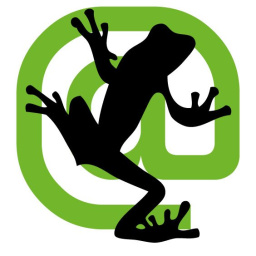Local SEO
by Abbs
Posted on 2023-11-20 11:21:56
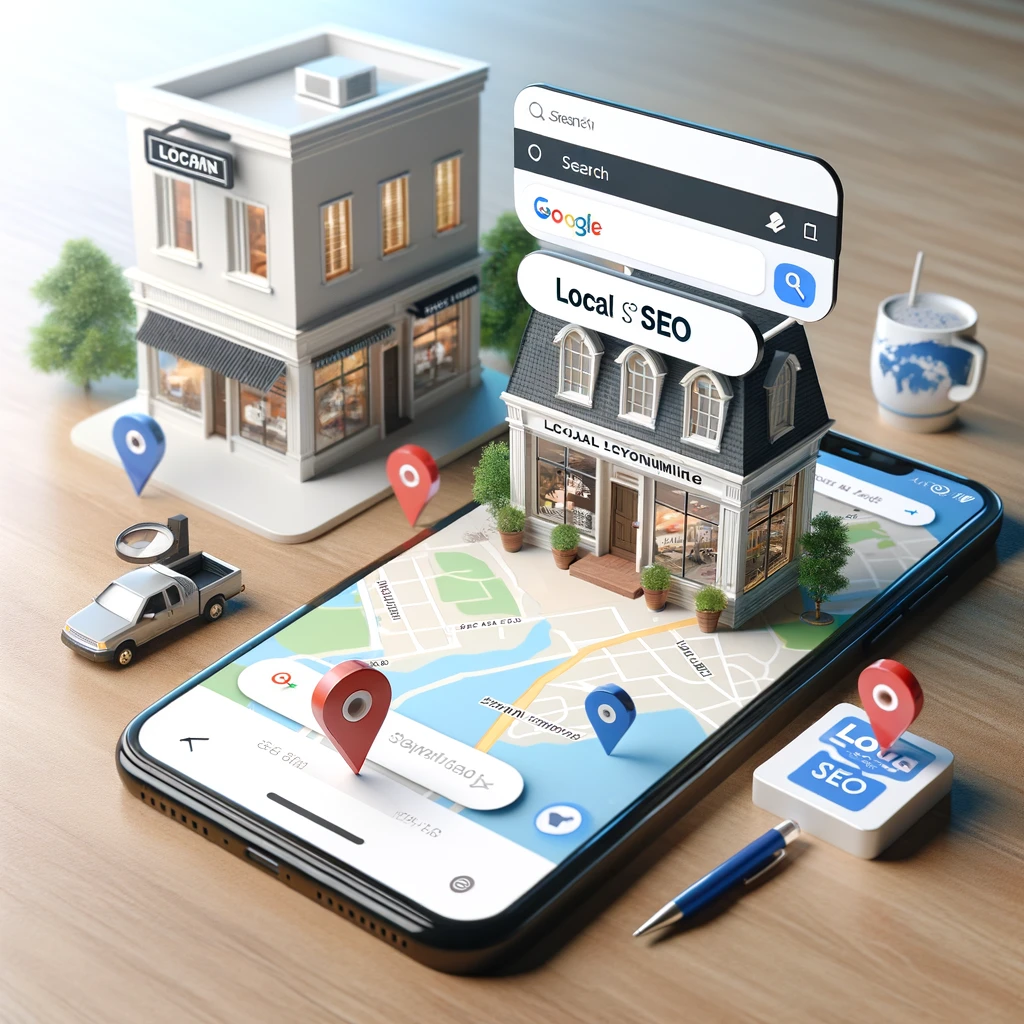
Local SEO is vital for businesses with a physical location. It helps people in your area find and patronize your business when searching online.
This complete guide will teach you how local SEO works and how to optimize your website and online presence to rank higher in local search results.
TIP: Be active on industry forums and Q&A sites like Quora, linking back to your website when relevant.
What is Local SEO?
Local SEO is the practice of optimizing your online presence so your business can be easily found and selected by local customers searching on search engines like Google.
The goal is to appear prominently when potential customers search for local businesses related to your products and services. This helps you connect with consumers ready to make a purchase in your area.
Local SEO focuses on optimizing your visibility in Google My Business listings, Google Maps, and local search engine results pages.
Key Differences Between Local and Organic SEO
While local and organic SEO are similar, there are some key differences:
- Location focus: Local SEO is optimized for a specific geographic area while organic SEO has a more global focus.
- Intent: Local SEO appeals to searchers looking for a nearby business. Organic SEO appeals to a wider informational search intent.
- Ranking factors: Local SEO gives more weight to signals like location, local links, and citations. Organic SEO focuses more on things like keywords, backlinks, site speed.
- Results: Local SEO can help you rank on the Local Pack and map listings. Organic SEO aims to rank you on the regular search results.
Why is Local SEO Important?
Local SEO is crucial for businesses with a physical location because:

- Nearby customers search locally: 46% of searches have local intent. Local SEO helps you connect with these ready-to-buy customers.
- Mobile searches are local: More than 50% of searches occur on mobile. Local searches like "food near me" have grown 413% since 2014.
- Increases foot traffic: 50% of consumers who do local searches on their phone visit a store within 24 hours. Local SEO drives in-person sales.
- Google favors local businesses: Google designed features like the Local Pack and Maps to prominently display local businesses.
- Build brand awareness: Local SEO strengthens your visibility and brand locally when people search for businesses like yours.
In short, local SEO helps you stand out and rank higher when prospective customers search for businesses in your industry and location. This visibility turns searchers into paying customers.
How Does Local SEO Work?
To understand local SEO, you need to first understand how Google determines which businesses rank for local searches.
There are two key elements:
TIP: Actively engage on social media platforms and share your website's content.
The Google Local Index
This is Google's database containing all the local business listing data. The index gets populated in two key ways:
- Google bots crawl websites and business listings across the web to find business names, addresses, phone numbers, opening hours, and other information.
- Businesses can directly submit their business data to Google through Google My Business.
Submitting directly to Google is better since it helps ensure your business information is accurate and consistent in Google's index.
Local Ranking Algorithms
Google uses complex local search algorithms to rank businesses for a given local query.
TIP: Participate in relevant podcast discussions and ensure your website gets a mention.
These algorithms analyze dozens of local ranking factors to determine the most relevant businesses to display.
Factors like proximity, prominence, Google My Business signals, and local links help the algorithm make ranking decisions.
Understanding these key local SEO ranking factors is crucial for success. We'll cover the most important factors later in this guide.
Local SEO Results You Can Rank For
There are two main types of local SEO results you can rank for:
Local Pack
The Local Pack (also called Local Finder or Map Pack) is a set of 3 local business listings that appear at the very top of Google results for local searches.
The Local Pack pulls business info like name, address, phone number, photos, and reviews from Google My Business.

Ranking in the Local Pack is hugely important for visibility since it appears before the regular organic search results. According to Moz, 29% of searches now show Local Packs.
Local Organic Results
Local organic results are the normal web page listings you find on Google. They appear below the Local Pack when Google determines the search has local intent.
While not as visible as the Local Pack, ranking in the local organic results is still important. This gives you another opportunity to appear prominently for local searches on the first page.
Which Businesses Should Use Local SEO?
For businesses with a physical location that serves local customers, local SEO is extremely beneficial.
Here are some examples of local businesses that should prioritize local SEO:
- Retail stores
- Restaurants
- Service providers like plumbers, lawyers, dentists, etc.
- Healthcare like doctors' offices and hospitals
- Hotels and hospitality
- Gyms and fitness centers
- Salons and spas
- Contractors and home services
- Auto repair shops
- Real estate agencies
- Schools and education providers
Essentially, any business with a local customer base should invest in local SEO. Appearing prominently for local searches will help drive foot traffic and increase sales.
For online-only businesses without a physical location, local SEO is less relevant. In these cases, traditional organic SEO that targets country or worldwide search traffic is more beneficial.
Step-by-Step Local SEO Guide for Businesses
Now let's walk through a complete step-by-step guide to local SEO for businesses looking to increase their visibility.
Follow these tips to appear higher in local search rankings:
1. Optimize Your Google My Business Listing
Google My Business (GMB) is the foundation of local SEO given how heavily Google weighs it for local rankings.
TIP: Encourage customer reviews on platforms like Google My Business to improve local SEO.
Key Google My Business optimization tips:
- Create your listing: Make sure you have claimed and verified your GMB listing. This displays your business info in Google Maps/Search.
- Complete your profile: Fill out as many details as possible like photos, service offerings, specialties, awards etc. Google favors complete profiles.
- Add multiple categories: Accurately categorize your primary service(s) and include additional relevant categories.
- Update business info: Double check your hours, address, phone number and other info is accurate. Update immediately if anything changes.
- Get reviews: Actively collect and respond to reviews on your listing. More positive ratings help improve visibility.
- Monitor analytics: Check your GMB dashboard for insights on how customers find and interact with your business.
2. Build Quality Local Citations
Local citations are any mention of your business name, address, and phone number (NAP) on other websites like directories and review sites.
Citations help reinforce that your NAP is accurate everywhere online. Consistent NAP citations across the web are an important local ranking factor according to Moz's Local Search Ranking Factors study.
Follow these tips for better local citations:
- List your business info on high-quality local directories related to your industry like YellowPages.com.
- Get listed on aggregator sites like Acxiom, Infogroup, Neustar/Localeze. They provide business data to hundreds of directories.
- Claim and optimize your listings on popular review sites like Yelp.
- Fix duplicate listings by merging or removing incorrectly listed business information.
- Monitor new citations to ensure incoming links have accurate business details.
[Learn more >> The Complete Guide to Local Citations]
TIP: Create high-quality backlinks from reputable websites to improve domain authority.
3. Perform Local Keyword Research
Use keyword research to find locally-focused keywords and phrases that your customers are searching for.
Tips for researching local keywords:
- Include local modifiers like city name (e.g. pizza Chicago).
- Leverage keyword research tools like Semrush, Ahrefs, and Google Keyword Planner.
- Analyze search trends to find seasonally popular local keywords.
- Check competitor websites for local keyword opportunities using analysis tools.
- Identify long-tail keyword variations (e.g. Chicago deep dish pizza).
[Learn more >> How to Do Local Keyword Research]
4. Optimize Your Website for Local SEO
On-page optimization is crucial so your site effectively targets your local service area and keywords.
Follow these key on-site local SEO tips:
- Ensure your business name, address and phone number (NAP) are on your homepage and contact page.
- Add a local area served section clearly indicating zip codes or regions you serve.
- Include city names throughout your site's content to reinforce your location.
- Create unique localized content and landing pages optimized with your target local keywords.
- Add Schema markup for your business info and reviews to enhance local snippets.
5. Generate Links from Local Sites
Earning high-quality backlinks from local sites helps reinforce your location and relevance.
Local link building strategies:
- Request links from local business partners and vendors in your area.
- Guest post on local media sites and niche blogs focused on your city and industry.
- Sponsor local events, nonprofit fundraisers or community programs in exchange for links.
- Pitch experts at your local Chamber of Commerce or tourism board for guest posts.
- Contact high-domain-authority local educational institutions like universities for backlinks.
6. Get More Local Reviews
Reviews build credibility and help customers trust your business. According to Moz's Local Search Ranking Factors study, reviews are the third most important local SEO signal.
Follow these tips to get more online local reviews:
- Add a review link in your email signature to collect Google reviews.
- Incentivize customers by offering a discount in exchange for reviews.
- Run targeted Facebook ads promoting your review links to locals.
- Respond to all reviews (positive and negative) to show you value customers.
- Resolve negative reviews and address feedback to mitigate damage.
7. Track Your Local Rankings
Consistently monitoring your local SEO progress is key for ongoing improvement.
Use these two tools to track your local search presence:
- Google Search Console provides insights on your overall Google organic performance.
- Rank tracking software enables you to track keyword ranks by location. Choose a tool that checks map pack and organic rankings.
Check your rankings frequently and ensure you're moving upwards for your target local keywords and search queries.
Advanced Local SEO Strategies and Tips
Beyond the basics above, there are some more advanced strategies that can give your local SEO efforts a boost when starting out.
Leverage Google Posts
Google Posts enable businesses to publish content directly into Google My Business listings.
According to studies by Local SEO experts Joy Hawkins and Mike Blumenthal, Google Posts can improve click-through rates.
Create Location-Based Content
Create blog content around topics specifically relevant to your local area. This shows search engines you have intimate local knowledge.
For example, a New York City florist could create content like "The Top NYC Venues for Weddings".
Use Local Schema Markup
Add LocalBusiness schema and review markup to your website code. This can enhance the presentation of your business info in some local search engine result snippets.
Build Links From Location Pages
Many sites like newspapers have location or city-specific pages (e.g. nytimes.com/boston). Getting links from these highly locally-relevant pages can improve your area authority.
Sponsor Local Events or Teams
Sponsoring local events, sports teams, or community initiatives can build brand awareness and often comes with a link back.
Local SEO Tools
Investing in the right software tools can simplify local SEO and make it more efficient.
Here are some of the top local SEO tools:
Google My Business Optimization
- Whitespark
- Moz Local
- Synup
Local Rank Tracking
- BrightLocal
- Local SEO Checker
- SEMRush
- Surfer SEO
Local Link Building
- BuzzStream
- Citation Labs
- Pitchbox
Local Listing and Citation Management
- Yext
- BrightLocal
- Moz Local
All-in-One Local SEO Tools
- SEMRush Local SEO Toolkit
- Ahrefs
- Moz Local
- BrightLocal
- Screaming Frog SEO Spider
Local SEO Success Tips
- Claim your Google My Business listing - this is the foundation for Google local visibility.
- Get listed on the most popular citation sites in your category like Yelp.
- Optimize for long-tail variations of your keywords including city name.
- Go beyond competitors' keywords and find other local phrases with search volume.
- Build localized pages and content optimized for different target cities and zip codes.
- Earn links from authority websites focused on your metro area and industry.
- Collect feedback via reviews and address any negative comments.
- Stay on top of changing search trends and update your optimization accordingly.
Frequently Asked Local SEO Questions
Should I hire a local SEO agency or consultant?
Professional local SEO services can be highly beneficial, especially if local search optimization is new to you. Experts will save you time getting set up properly and keep your strategy updated over time.
How long does local SEO take to see results?
It varies based on your existing business visibility and domain authority. However, sites that fully optimize typically notice local ranking improvements within 3-6 months.
How much does local SEO cost?
Local SEO costs range widely based on the service provider and the scope of services. DIY local SEO using free tools is the most budget-friendly route. Professional local SEO services typically start around $500 per month.
Is local SEO harder than organic SEO?
Local SEO requires managing unique complexities like accurate NAP data, local listings/citations, proximity ranking factors, and location-based content optimization. For this reason, local SEO is often viewed as more challenging than organic SEO.
How do I track my Local Pack ranking?
Use rank tracking software that allows you to track map pack rankings by location. This enables you to see where you rank for a target local keyword throughout your area.
Can I rank locally without a Google My Business listing?
It's highly unlikely. Google My Business is the main avenue for getting your business info into Google's local index. Without claiming your listing, you'll struggle to gain any local visibility.
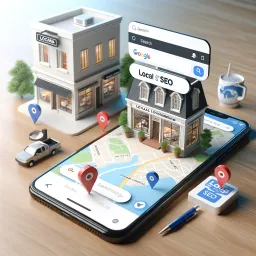 Local SEO is vital for businesses with a physical location. It helps people in your area find and pa
Local SEO is vital for businesses with a physical location. It helps people in your area find and pa
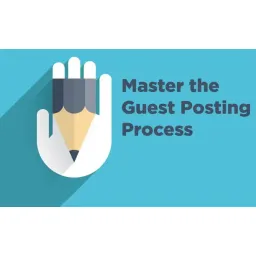 What is Guest Blogging and How Can it Help Your SEO?
With the increasing competition in the digital
What is Guest Blogging and How Can it Help Your SEO?
With the increasing competition in the digital
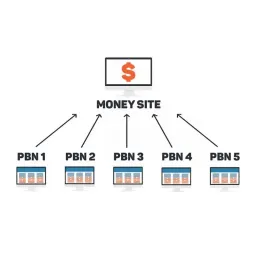 What is a Private Blog Network?
A Private Blog Network (PBN) is a system of websites utilized to bu
What is a Private Blog Network?
A Private Blog Network (PBN) is a system of websites utilized to bu
